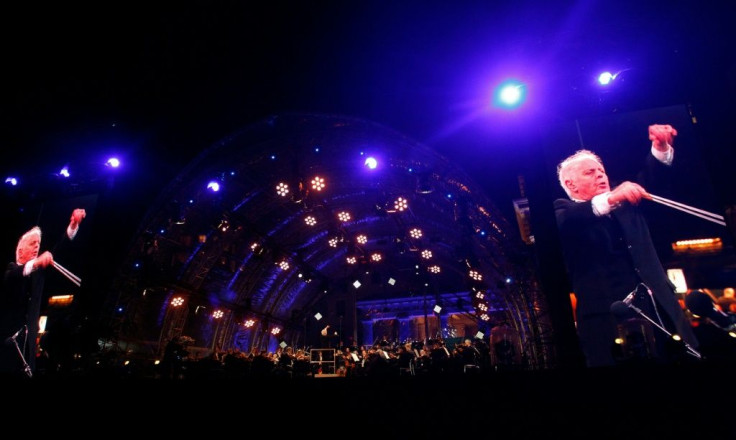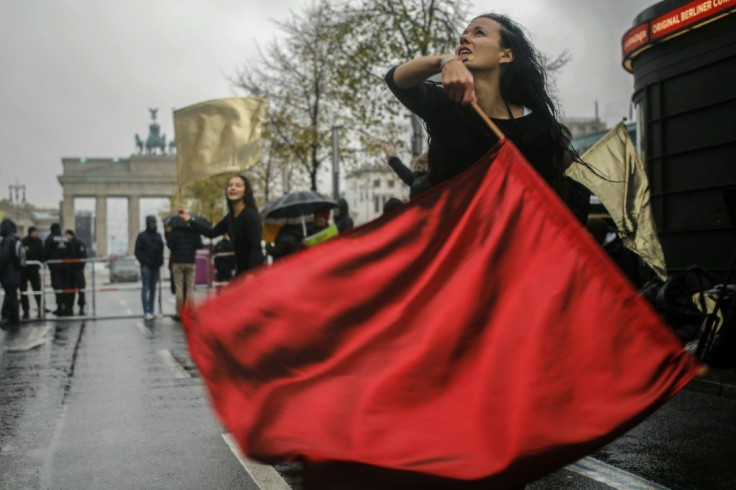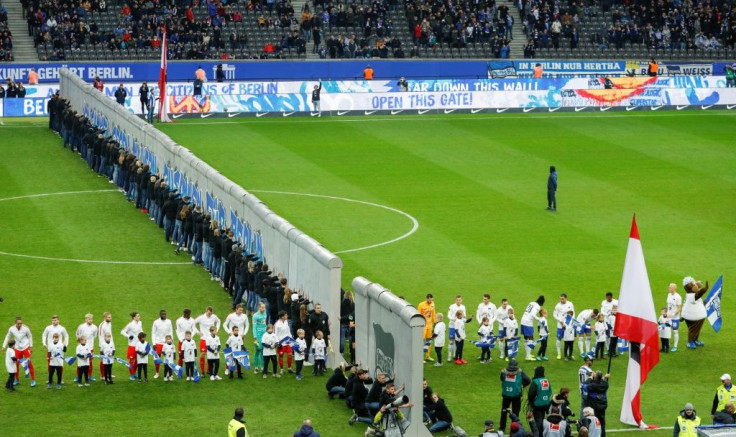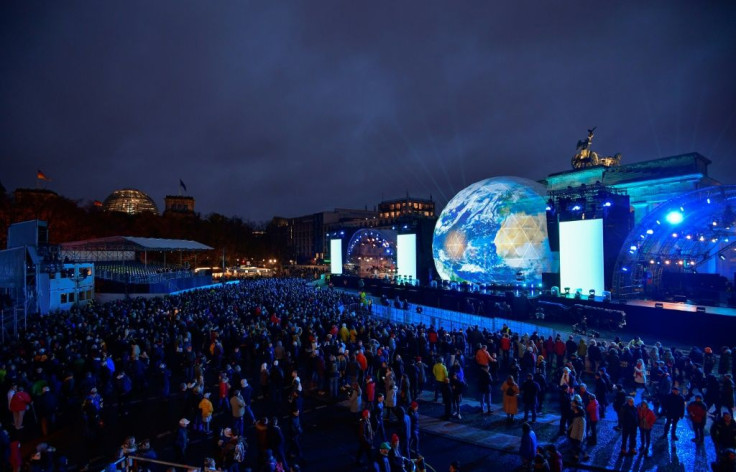Sparkling Wine, Giant Party As Germany Marks Wall Fall

Just as every year since November 9, 1989, Kaethe Struebing was waiting for her family at a former East Berlin checkpoint to pop open a bottle in celebration of the fall of the Berlin Wall.
"I'm waiting for my daughter-in-law, who's from the Netherlands. We'd never have met her if the borders hadn't opened," she told AFP on Saturday as Germany marked 30 years since overwhelmed East German guards threw open the borders to the West.
"We meet here every November 9, and we drink a bottle of sparkling wine, we toast the fall of the Wall," Struebing said contentedly at the Friedrichstrasse station former checkpoint.
Three decades on, the former East Berliner still remembers shaking as she passed Friedrichstrasse station's so-called "Palace of Tears", an important crossing between communist East and democratic West Berlin.
Often, she would smuggle hard currency from her father in West Berlin to her flat in a pre-fabricated block in Eastern neighbourhood Marzahn.
Going the other way, she once slipped through border checks with identity documents belonging to a friend's son who had fled the communist German Democratic Republic (GDR).

"My heart was pounding, I was afraid," she said. "(If caught) I would have ended up somewhere I'd never have wanted to go".
On the night of November 9, she roused her then-18-year-old son from his bath when news the Wall was open came on Western TV.
"He'd never got dressed so quickly," Struebing recalled. "Early in the morning he came back, happy, exhausted, excited."

Across the German capital, commemoration ceremonies, special exhibitions and shows were in full swing on Saturday as the city remembered the momentous event.
Chancellor Angela Merkel and other politicians left roses in the cracks of a section of the Berlin Wall still standing in the north of the capital.

At the Brandenburg Gate meanwhile, tens of thousands gathered to hear rock bands, rappers, DJs and the city's orchestra, under a canopy of streamers bearing ordinary people's messages and wishes for the future turned into a floating artwork.
Undeterred by the drizzle, Tim Warnken from East Frisia on the North Sea coast had travelled in to join the party.
For Warnken, November 9, 1989 "shows that you can't simply lock people up and force a system on them, you can't take their freedom away".
Along the longest stretch of Wall still standing, known as the East Side Gallery, a light show entertained spectators as metro trains rumbled over the nearby Oberbaumbruecke bridge -- blocked to traffic during the city's division.
World famous techno clubs hosted artists from around Europe for 27 separate parties -- one for each of the European Union's member states (minus departing Britain).
And West Berlin Bundesliga team Hertha built a replica Wall across their Olympic Stadium turf, only to knock it down just before the late afternoon's kickoff against Leipzig.
Edwin Glatter, 54, who was in West Berlin the night the Wall fell, returned to the capital from the Black Forest especially to mark the occasion on Saturday with friends.
He recalled his local bar on West Berlin's Kurfuerstendamm boulevard suddenly full of "strange" new people on that fateful day, while others were hugging and handing out champagne on the street.
When he and his girlfriend heard the borders were open, "she said, for God's sake, the Russians are coming! She was shaken and horrified," he remembered, guffawing with laughter.
Later at Potsdamer Platz, the crowd cheered as pneumatic drills began pounding chunks out of the hated barrier.
"People were laughing themselves to death... it was a giant party," Glatter recalled.
tgb/hmn/har
© Copyright AFP 2024. All rights reserved.





















